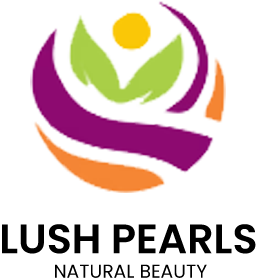Have you ever taken a long, hard look at yourself—not in a mirror, but in the quiet space of your mind? Self-reflection can be the ultimate journey into understanding yourself. It’s about finding out who you are, what you value, and how you can create a life that aligns with those values. In today’s fast-paced world, we often forget to take a moment to reflect. But imagine if we could look into our own minds with as much clarity as we look into a mirror. How powerful would that be?
Why Self-Reflection Matters
Self-reflection is more than a trendy term; it’s a cornerstone of personal growth and mental well-being. When you stop to reflect, you give yourself a chance to evaluate your actions, thoughts, and emotions. This process can shine a light on areas that need improvement while also highlighting your strengths and accomplishments. Think of it like polishing a mirror: the clearer your reflection, the better you can see your true self.
Studies show that self-reflection can improve decision-making, reduce stress, and even boost your creativity. It’s like exercising your brain’s muscles—helping you develop self-awareness and an understanding of what truly drives you. The benefits of self-reflection can extend to every area of life, from relationships and career goals to personal happiness.
Starting Your Journey into Self-Reflection
Embarking on a journey of self-reflection may sound daunting, but it can be as simple as setting aside a few minutes each day. Here’s how to make it a habit:
- Find Your Quiet Space: Self-reflection requires concentration and a space free from distractions. Whether it’s a cozy corner at home, a quiet park, or even your car, find a place where you feel calm and can focus on your inner thoughts.
- Ask the Right Questions: Reflection begins with curiosity. Some questions to consider: What am I grateful for today? What challenges am I facing? How do I feel about myself and my actions? Open-ended questions encourage a deeper exploration of thoughts and emotions, giving you insight into areas you might overlook in the busyness of daily life.
- Start a Reflection Journal: Writing things down can help you organize your thoughts and see patterns over time. Each day, jot down what you’re feeling, any challenges you faced, or things you’re proud of. This simple practice can reveal hidden trends, helping you gain clarity and make more mindful choices.
- Embrace Your Wins and Losses: Self-reflection isn’t just about identifying mistakes; it’s also about celebrating your achievements. Recognizing the progress you’ve made boosts confidence and motivation while acknowledging setbacks allows you to learn from them.
Techniques for Deeper Self-Reflection
For those ready to dive deeper, try exploring some techniques that can amplify the benefits of self-reflection. Here are a few methods that go beyond the basics:
- Mindfulness Meditation: Practicing mindfulness meditation can help you become more attuned to your thoughts and emotions in real-time. By sitting in silence, focusing on your breath, and observing your thoughts without judgment, you cultivate a sense of inner awareness that is vital to self-reflection.
- Mirror Talk: Yes, literally talking to yourself in the mirror! This practice might feel strange at first, but speaking to your reflection can help you articulate your thoughts and build self-acceptance. You might try asking yourself questions or simply affirming positive aspects of yourself. Mirror talk can strengthen self-compassion and empower you to face your challenges with a more positive mindset.
- Monthly Reflection Check-ins: Each month, set aside an hour to review your goals, relationships, and personal growth. Reflect on what you’ve learned, what you’d like to improve, and how you can take actionable steps forward. Think of it as a personal “performance review” that keeps you aligned with your life’s goals.
Overcoming Self-Reflection Barriers
While self-reflection can be rewarding, it’s not without its challenges. Sometimes, we fear confronting parts of ourselves that are uncomfortable or painful. But remember, self-reflection is a process, and it’s okay to feel vulnerable. Start small, be patient, and remind yourself that growth often comes from discomfort.
It’s also common to feel “stuck” or uncertain about what to focus on. In these cases, consider seeking external feedback. A friend, family member, or mentor can offer insights that help you see blind spots in your self-assessment.
The Mirror of the Mind: Transforming Your Life
In a sense, self-reflection is like gazing into a mirror that reflects not just our outward appearance but our inner landscape. The more you reflect, the clearer that mirror becomes, helping you understand your values, your motivations, and even your fears. It empowers you to live a life that’s true to yourself, making choices aligned with your personal vision.
Imagine the impact of daily, consistent self-reflection. You’d not only gain self-clarity but also boost your emotional resilience, improve relationships, and create a deeper connection with yourself. And ultimately, when you know who you are, you can set and pursue goals that are genuinely meaningful.
Final Thoughts on Self-Reflection
Self-reflection is a powerful tool, and it’s never too late to start the journey. Just like any skill, the more you practice, the more natural it becomes. Make self-reflection a daily ritual, and watch as it transforms your understanding of yourself and your life. The journey within may be challenging, but it’s a rewarding path that leads to a life filled with self-awareness, growth, and fulfilment.
Take a moment now, find a quiet space, and start reflecting. Your mirror of the mind awaits, ready to reveal a deeper, clearer version of you.

